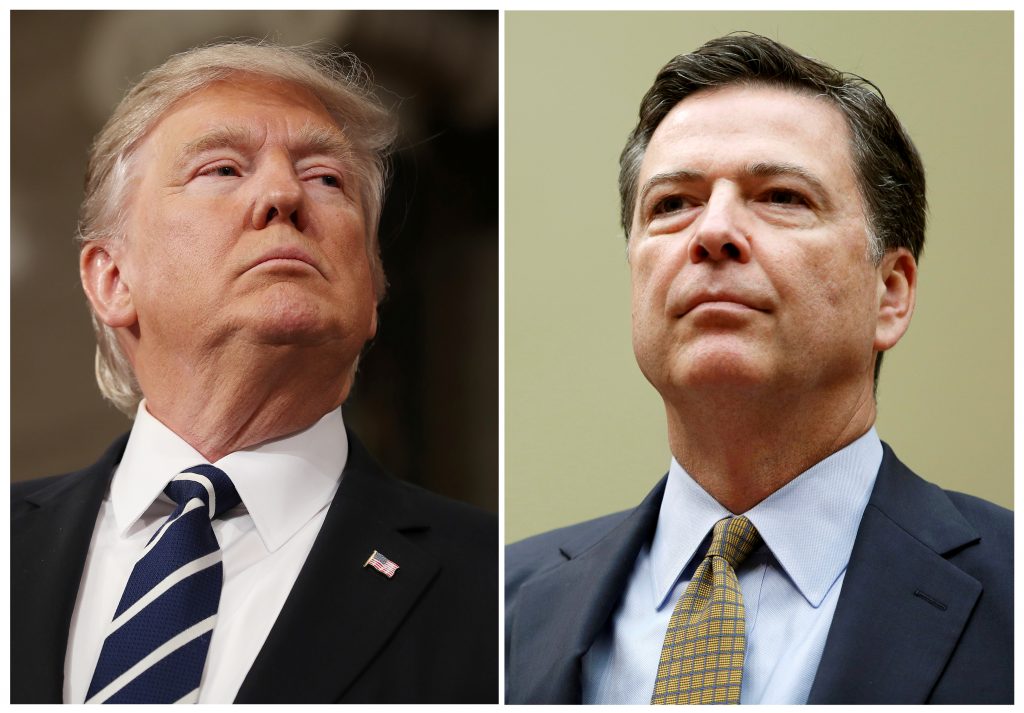Report on the Indictment of James B. Comey and its Implications for Sustainable Development Goal 16
This report analyzes the federal indictment of former FBI Director James B. Comey Jr., focusing on its significant implications for the principles of justice, institutional integrity, and the rule of law, as outlined in Sustainable Development Goal 16 (Peace, Justice and Strong Institutions).
Case Summary and Charges
A federal grand jury has indicted former FBI Director James B. Comey on two counts of making false statements during his September 2020 Senate testimony regarding the FBI’s Russia inquiry. The case, filed on September 25, 2025, in Alexandria, Virginia, tests the accountability of high-level officials and the independence of judicial institutions.
- Charge 1: Allegedly denying the authorization of an FBI official to act as an anonymous media source, in violation of 18 U.S.C. §1001.
- Charge 2: Allegedly falsely claiming an inability to recall key intelligence briefings pertinent to the 2016 election.
Each charge carries a potential sentence of up to five years in prison. Mr. Comey maintains his innocence and has stated his confidence in the federal judicial system.
Analysis in the Context of SDG 16: Peace, Justice and Strong Institutions
The prosecution presents a critical test for the United States’ commitment to SDG 16, particularly its targets related to the rule of law and the development of effective, accountable, and transparent institutions.
Challenges to Institutional Accountability and the Rule of Law (SDG Target 16.3 & 16.6)
The case directly engages with the core tenets of SDG 16, which call for promoting the rule of law and building accountable institutions free from political influence.
- High Legal Standard: Conviction under 18 U.S.C. §1001 requires prosecutors to prove not only that statements were false but also that they were made knowingly and willfully. The difficulty in proving deliberate intent over faulty memory could undermine the case, potentially damaging the Justice Department’s credibility and its ability to enforce accountability.
- Risk of Politicization: Former U.S. Attorney Harry Litman has warned that a failed prosecution could result in “career-ending” consequences for the prosecutors and reinforce public perception of the Justice Department being used for political ends, thereby weakening public trust in key institutions (SDG 16.6).
- Internal Institutional Concerns: Reports indicate that career prosecutors within the Eastern District of Virginia presented a memo to U.S. Attorney Lindsey Halligan advising against bringing charges, citing insufficient evidence. Proceeding against this counsel raises questions about the responsiveness and integrity of institutional decision-making processes.
Political Pressure and Institutional Independence (SDG Target 16.7)
The indictment follows public demands for prosecution from President Donald Trump, creating a perception of political pressure that challenges the non-discriminatory and independent application of the law.
- President Trump publicly urged Attorney General Pam Bondi to ensure “JUSTICE MUST BE SERVED, NOW!!!” regarding Mr. Comey.
- Such commentary on an active criminal matter is highly unusual and could be used by the defense to argue selective or politically motivated prosecution, a direct threat to the principles of equal access to justice (SDG 16.3).
Institutional Capacity and Effectiveness (SDG Target 16.6)
The appointment and experience of the U.S. Attorney overseeing this high-stakes case have drawn scrutiny regarding institutional capacity.
- Lindsey Halligan, the U.S. Attorney for the Eastern District of Virginia, previously served as a personal attorney for President Trump and has limited federal prosecutorial experience, having participated in only three federal cases prior to her appointment.
- This contrasts sharply with her predecessor, who was reportedly involved in 675 federal cases and was removed after resisting pressure to prosecute political opponents.
- Placing an official with limited prosecutorial experience in charge of a complex and politically sensitive case raises concerns about the capacity of the institution to function effectively and independently.
Conclusion and Broader Implications for Sustainable Development
The outcome of the Comey prosecution will have lasting implications for the strength and credibility of U.S. judicial and governmental institutions. The proceedings are a measure of the resilience of the rule of law against political pressure.
- A failed prosecution could severely erode public trust in the Justice Department, suggesting that legal institutions are susceptible to political weaponization. This would represent a setback for SDG 16.6 (effective, accountable institutions).
- A successful and impartially conducted prosecution could reinforce the principle of equal justice under the law, demonstrating that no official is above accountability. This would strengthen SDG 16.3 (promote the rule of law).
- The case will invariably shape future congressional oversight and the willingness of officials to provide testimony, impacting the transparency and accountability central to achieving SDG 16.
Mr. Comey is scheduled for arraignment on October 9, 2025, where the legal and institutional challenges outlined in this report will begin to unfold in a federal courtroom.
SDGs Addressed in the Article
SDG 16: Peace, Justice and Strong Institutions
- The entire article is centered on the principles of SDG 16, which aims to “build effective, accountable and inclusive institutions at all levels.” The indictment of James Comey is presented as a “test of the Justice Department’s credibility” and its ability to function as an effective and accountable institution. The narrative explores themes of justice, the rule of law, political interference in legal processes, and the integrity of public institutions, all of which are core components of SDG 16.
Specific SDG Targets Identified
-
Target 16.3: Promote the rule of law at the national and international levels and ensure equal access to justice for all.
This target is directly relevant as the article discusses the application of the rule of law through the prosecution of a high-profile individual under a specific federal statute (18 U.S.C. §1001). The debate over whether the prosecution is based on “clear, provable evidence” or is a case of “selective prosecution” driven by political motives is a direct examination of whether the rule of law is being applied impartially. The article questions if the case “meets ordinary evidentiary standards” or if it was “driven by political pressure rather than law.”
-
Target 16.5: Substantially reduce corruption and bribery in all their forms.
While not mentioning bribery, the article strongly implies a form of institutional corruption through the “political misuse of the Justice Department.” The repeated public demands from President Trump for the prosecution of a political adversary, as noted in his Truth Social post (“JUSTICE MUST BE SERVED, NOW!!!”), and the subsequent indictment by a newly appointed, politically loyal U.S. Attorney, suggest an abuse of institutional power for political ends. This aligns with the goal of reducing corruption, which includes preventing the politicization of justice institutions.
-
Target 16.6: Develop effective, accountable and transparent institutions at all levels.
The article is fundamentally a critique of the effectiveness and accountability of the Department of Justice (DOJ). It explicitly states that if the case fails, it could “damage DOJ’s reputation for independence” and “harden perceptions of politicization.” The discussion about the internal dissent, where career prosecutors urged against the indictment, and the appointment of a U.S. Attorney (Lindsey Halligan) with minimal prosecutorial experience but strong political ties, directly addresses the capacity and accountability of the institution. The core issue is whether the DOJ can remain an effective and independent institution “free of political interference.”
Indicators for Measuring Progress
-
Indicators for Target 16.3 (Rule of Law)
- Adherence to evidentiary standards in politically sensitive cases: The article implies this can be measured by whether prosecutors proceed based on evidence that establishes “probable cause.” The existence of a memo from career prosecutors “urging against charging Comey, arguing the evidence did not establish probable cause” serves as a negative indicator.
- Judicial outcomes of politically motivated prosecutions: The article suggests that the outcome of the case—whether it results in “dismissal, acquittal, or conviction”—will serve as a key indicator of the justice system’s impartiality and its ability to uphold the rule of law against political pressure.
-
Indicators for Target 16.5 (Reduce Corruption)
- Public perception of institutional independence: The article repeatedly refers to the importance of the “perception of independence” and the risk of “perceptions of politicization.” A decline in this perception, which can be measured through public surveys and expert analysis, would indicate a failure to curb the corrupting influence of politics on justice.
- Frequency of public executive pressure on specific criminal matters: The article provides a direct example of an indicator: President Trump’s public statements and social media posts demanding “public action against Comey and other rivals.” Tracking such instances serves as a direct measure of political interference.
-
Indicators for Target 16.6 (Effective, Accountable Institutions)
- Credibility and reputation of justice institutions: The article posits that the “Justice Department’s credibility” is on the line. This can be seen as an indicator, where a loss in court could “damage DOJ’s reputation for independence,” signaling a decline in institutional effectiveness.
- Professional experience of key judicial appointees: The article implicitly uses this as an indicator by contrasting the new U.S. Attorney Lindsey Halligan, who has participated in “only three federal cases,” with her predecessor, who was listed on “675 federal cases.” This disparity is presented as a measure of the institution’s commitment to professional competence over political loyalty.
Summary Table: SDGs, Targets, and Indicators
| SDGs | Targets | Indicators (Implied from the Article) |
|---|---|---|
| SDG 16: Peace, Justice and Strong Institutions | 16.3: Promote the rule of law and ensure equal access to justice. |
|
| 16.5: Substantially reduce corruption in all its forms. |
|
|
| 16.6: Develop effective, accountable and transparent institutions. |
|
Source: newsweek.com






